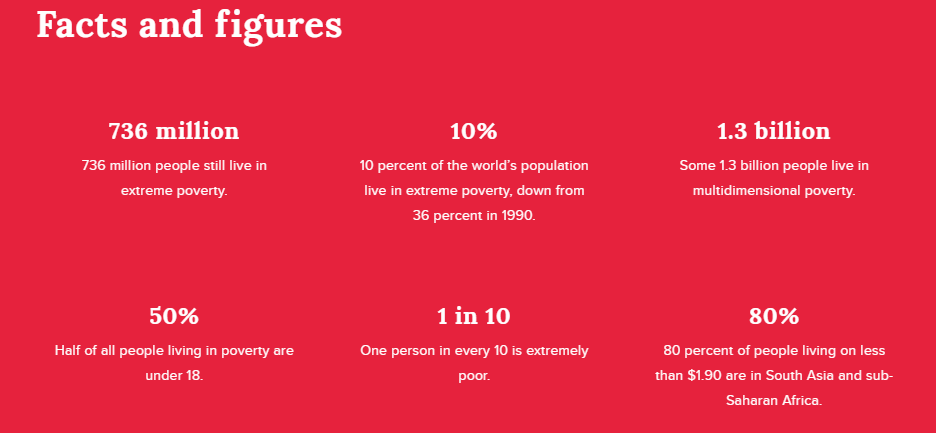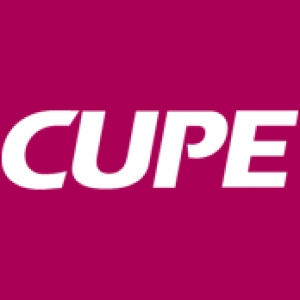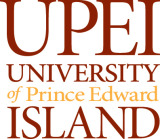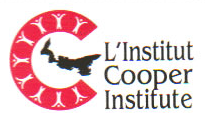This summer, ACIC was able to secure funding through Canada Summer Jobs to hire two interns. These students helped with various projects over the summer and have been a great help overall! With their terms here ending, here are their reflections on their time here, and what’s in store for the future.
Read moreLGBTQ2S+ Voices in Sustainable Development
My name is Lindsay Vandewater and I work for Atlantic Council for International Cooperation (ACIC). I am a member of the LGBTQ2S+ community in Halifax and a passionate advocate for queer rights. I have a background working in social equity, and as someone constantly engaged with the issues faced by queer people, I have hosted a handful of Pride events in the past.
Prior to my time at ACIC, they conducted a great piece of research on youth and the UN Sustainable Development Goals (SDGs), entitled Your Voice Matters. In this research, ACIC sought out youth and youth-serving organizations in Atlantic Canada in order to determine how best to engage Canadian youth on global, regional, and local sustainability. After reading the report, I asked the question I always tend to ask: "what about queer people?" I thought to myself that surely this research could be done with other demographics. I started researching what sustainable development means to LGBTQ2S+ communities, only to find many organizations discussing an exclusion-by-omittance aspect of sustainable development. It surprised me to see that there is very little explicit mention of LGBTQ2S+ people in the SDGs, seeing as the more socially oriented goals focus on gender equality and reducing inequalities.
What does sustainable development mean?
The United Nations Development Program describes human development as “expanding the richness of human life… It is an approach that is focused on creating fair opportunities and choices for all people." Based on human development, as well as building upon the previously established Millennium Development Goals, the UN created Agenda 2030 for Sustainable Development with accompaniment of the Sustainable Development Goals (SDGs). Agenda 2030 focuses on 17 universal aspirational goals, complete with target objectives, that are meant to be achieved in the 15 years between 2015-2030.
““There are 17 goals all based on a single, guiding principle: to leave no one behind. We will only realize this vision if we reach all people regardless of their sexual orientation or gender identity.” ”
"Leave no one behind" is the common thread that binds the 17 goals together as a collective plan for sustainable development. As a broad framework, the Agenda is meant to by adapted by individual countries to their own social, economic, and environmental needs. When Canada signed on to the Agenda in 2015, it made commitments to the SDGs while adapting each of the goals to benefit Canadians and supplement Canada's capacity to help with global change.
So, what does "leave no one behind" mean to communities who are not consulted or explicitly included in the Agenda? What does it mean to queer Canadians and those living in Canada when we see our country focusing more on the environmental aspects of Agenda 2030 than the societal aspects? How do we ensure that our voices are heard in the march towards achieving the 17 goals?
Global Identities of LGBTQ2S+ Communities
Retrieved from: https://ilga.org/maps-sexual-orientation-laws
As one of the first countries to adopt same-sex marriage, Canada remains one of the leading countries in human rights for LGBTQ2S+ people. In 2017, Canada adopted protections for gender identity and expressions, adding to the already-established protections based on sexual orientation. That being said, queer people still have an uphill battle to reach equality. Canada holds steady on the archaic blood donation ban for gay men and limited ability for trans people to donate; gender expression is not legally protected in all provinces and territories; and conversion therapy is a political chip currently on the table in Canada. These are just some of the political issues LGBTQ2S+ communities face.
According to The International Lesbian, Gay, Bisexual, Trans and Intersex Association (ILGA), there are 141 other countries that have at least some protections for LGBTQ2S+ people. In 2019, we have seen a considerable amount of headway made towards global gay rights, including votes to legalize same-sex marriage in Austria, Taiwan, Ecuador, and Northern Ireland.
Conversely, there are 125 countries worldwide that, as of July 2019, have no protections—or even criminalize—same-sex relationships, including 11 countries that may still enforce the death penalty (see ILGA map above). The range of experiences and protections differ from country to country, but it is clear that, in a global context, LGBTQ2S+ people face serious barriers to equality.
Of the 17 SDGs, several are directly related to queer communities globally, while many are more loosely tied to issues in queer communities. As we will see, regardless of whether the specific goals are directly related to queer people, all of the goals are inter-related. This means that if even just one goal is directly related to queer people, then as a collective the SDGs are significant to the community; if queer experiences can give insight on just one of the goals, then those experiences will be necessary to consider in all other goals. For example, poverty is a serious concern for people in LGBTQ2S+ communities, especially for young people. Later in this post I will explain how poverty is both created by, but also creates, a wide range of issues that are represented by many of the other SDGs.
Breaking down (some of) the goals
To understand the impact that queer communities could have on achieving the SDGs, and vice versa, it’s worth looking at the goals themselves. I have selected just a few of the goals to discuss. I won’t go too deep into discussing each of them, but will try to paint a picture of the significance that these goals have to LGBTQ2S+ identities.
Equality and Equity
Goal 5, Gender Equality, is one of the most relevant goals that could benefit from the input of LGBTQ2S+ people. Looking at this goal’s targets (see below), it’s clear that the UN has focused their definition for gender equality on the equality between men and women. However, our understanding of gender expression and gender identity is constantly evolving. Essential to fully understanding gender equality is understanding the concerns of people still on the fringes of equality, especially those who identify as trans or non-binary. What will gender equality between men and women mean to someone who is non-binary?
Women’s Rights
By not just excluding, but omitting queer people from the discussion, we are omitting generations of lesbian, bisexual, and trans women who have fought to establish not only queer rights, but also women's rights. Generations of queer women have ridden the waves of feminism, and their experiences should count for something. Intersectionality, or the concept that each layer of identity can potentially be affected by different forms of discrimination that intersect with one another, is a factor that needs to be included in any conversation about gender equality. Womanhood is intersectional, and to leave out any of the intersecting identities that women possess devalues the global struggle for gender equality.
To put it simply, inequality comes from imbalances in power and privilege. Above, I mention intersectionality, and how significant it is to understanding gender equality. But intersectionality is just as important in understanding any aspect of someone's identity and becomes increasingly important as we consider other identity factors like race, ethnicity, religion, sexual and gender orientation/expression, physical and mental ability, and social class.
Health and Well-being
Without a doubt, even in 2019, LGBTQ2S+ people across the world experience lower quality-of-life, even in countries like Canada that have progressive laws protecting queer people. Whether the issue be violence, discrimination, lack of proper or accessible health services, or even the systematic exclusion from quality education, decent work, or community engagement, queer people experience a pile of issues that degrade their health and everyday well-being.
Retrieved from: https://www.undp.org/content/undp/en/home/sustainable-development-goals/goal-1-no-poverty.html
Homelessness and Poverty
LGBTQ2S+ poverty is a multi-faceted concern. There are a wide range of issues that contribute to poverty, and homelessness can cause—and exacerbate—those very same issues. In Canada, it is estimated that around 40% of homeless youth identify as LGBTQ2S+. Consider the amount of violence and discrimination any given person experiences when homeless. That issue becomes compounded when considering the hate crimes people experience just based on sexual or gender identities. Further, homelessness will drastically affect one's ability to secure decent work and obtain a quality education (two of the SDGs).
Violence directed at queer-identified people is a global problem, despite many countries legislating governmental protections (see ILGA image above). Statistics Canada reports that people identified as lesbian, gay, and bisexual are much more likely to experience violent discrimination than heterosexual-identified people. Further, it is almost impossible to read news coming out of the United States without hearing about the ousting of trans people and the unbelievable amount of trans women who are murdered in hate crimes. We saw the horrific examples of targeted violence towards gay and bisexual men in the Chechen gay purges. Violence perpetrated against LGBTQ2S+ people not only affects the physical and mental health of the person who was victimized, but also the health of the community itself, which links directly with SDG 11: Sustainable Cities and Communities (more below).
Physical Health
Even apart from violence, many identities in the LGBTQ2S+ community require different levels of attention when the issue comes to physical health and medical attention. Intersex-identified people have long experienced tumultuous relationships with medical professionals. In fact, one of the most recognizable and tragic stories of mismanaged intersex healthcare comes out of Canada, with the case of David Reimer. Further, trans-identified people face barriers in accessing medical professionals who are properly suited to provide hormone treatment and/or perform gender reassignment surgery.
Mental Illness and Substance Abuse
Queer Canadians are at much higher risk of experiencing depression, suicidality, anxiety, obsessive compulsive disorder, and substance abuse than their heterosexual counterparts. Compounding the issue is the lack of medical services that are both accessible and accommodating to queer people. In broad strokes, we can attribute mental health concerns to anyone who experiences discrimination, especially for LGBTQ2S+ people in countries where there are fewer protections than there are in Canada, where 38% of Indigenous youth who identified as LGBTQ2S+ were unable to access mental health services when they needed to, compared to 27% of Indigenous heterosexual cisgender youth.
Communities and Peace
“Sustainable Development Goals 11 and 16 tie well together to highlight the importance of LGBTQ2S+ voices in sustainable development. You can read more about LGBTQ2S+ people and Goal 11 in an article by the advocacy group OutRight UN, which is one of the few resources that outlines clear actions items. In order to achieve peaceful and sustainable communities in any part of the world, we need to consider the barriers that produce inequalities for any given person (see SDG 11 targets in image to the left). With this in mind, the fact that countries have sparsely considered LGBTQ2S+ people in their targets for achieving sustainable development is that much more baffling. However, the justice systems and the development of strong, inclusive policies and procedures for institutions may help in leveling out the kind of imbalances caused by power and privilege.”
I want to make clear is that I do not believe that queer rights should come before the rights of any other underrepresented community. I believe that achieving the SDGs in their full capacity will be an improvement for so many struggling communities around the world. We need to strive for equality together, regardless of the communities we belong to. In fact, our differing communities can even be beneficial to one another in our fight for equality. It is incredibly important to share our thoughts and experiences with others so we can inform each other on the struggles that our communities are experiencing.
That being said, I believe LGBTQ2S+ communities provide a fascinating example on how the SDGs can affect, but also be informed by, any given community. A necessary point to make in this post is that as the rights for gay and trans people develop and grow in North America, so do the experiences that LGBTQ2S+ communities face when dealing with the struggle for those rights.
These experiences create a potential space where LGBTQ2S+ communities in protected countries can not only share their voices to advocate for queer communities around the globe who are still deeply struggling, but they can also share the experiences of queer liberation to create platforms for those still fighting. By sharing our stories as a collective, we can spark change to help others reduce the inequalities they face.
As I have identified in this post, queer communities are heavily affected by the concerns that have influenced the creation of the SDGs. Even in Canada alone, LGBTQ2S+ people struggle with health and well-being, discrimination and hate crimes, and poverty, among other concerns. Yet minimal effort is made to include the voices of queer communities in Canada's achievement of the SDGs. So, how do we ensure that our voices are heard in sustainable development? How do we ensure that we are not, in fact, left behind? We need to talk about the issues we face. We need to use the platforms we are given to direct conversation to our exclusion and continue to fight for platforms so others can do the same.
.
Thank you for taking the time to read this post. If you are interested in furthering our discussion on sustainable development, you can attend the Atlantic Council for International Cooperation’s event LGBTQ2S+ Voices in Sustainable Development at the Foggy Goggle on July 25th.
Public Engagement Catalyst Forum
The Inter-Council Network hosted an amazing group of public engagement practitioners from across Canada to share knowledge and build connections. Topics ranged from art in social change movements, to applying a feminist approach, to engaging Canadians in mobilizing around the UN's Sustainable Development Goals. The ICN's wonderful collection of resources on public engagement can be found on the Global Hive.
Read moreNewsletter Submissions
Dear ACIC Members from all four provinces,
It’s that time of year again!
Do you have an event you’d like to promote? An advertising poster to gain volunteers? How about an article about the great work you’re doing?
We’re working on our next edition of ACIC’s newsletter Rendez-vous and would love to have you contribute! See the Winter 2014 edition here: /communications/ to get an idea what it’s all about. We print 120 copies of the newsletter (provided at networking events), email it to our over 70 members and have 100 visits to the website per day.
Submissions are due Monday, June 23rd , to communications@acic-caci.org.
If you have any story, BIG or small, the ACIC Rendez-vous newsletter is a great way to spread the word. So please share it with us!
Ideas for submissions:
1. News of your activities, including any awards, events (especially for IDW (International Development Week))
2. Promotion of your blog or website,
3. Announcements of any upcoming events of interest to ACIC members,
4. Announcements of any noteworthy new publications, including audio/video,
5. Book reviews or audio/video reviews of recently published materials related to international cooperation. The reviews can be brief or in depth. Please include a few words about yourself along with your review(s) and any relevant photographs,
6. Reports on any recent events you attended that may be of interest to ACIC members,
7. You may also send an ad or poster for an event/your organization.
Remember:
If possible, please include 3 images saved as a high quality JPEG/PNG. **Please include a caption and who took the photo.
We also welcome any further suggestions for the newsletter.
Please send your submissions no later than Monday, June 23rd, to communications@acic-caci.org.
International Volunteer Day - Taylor Quinn
To mark International Volunteer Day on December 5th, 2013 ACIC staff attended a reception hosted by The Honourable Labi Kousoulis, Minister of the Voluntary Sector, at Province House in Halifax. Taylor Quinn, one of ACIC’s 2013 youth ambassadors, spoke about the role and contribution of volunteers, particularly youth, in our global community.
Please take a few minutes and read Taylor's speech below:
 First, I would like to thank Minister Kousoulis and the Atlantic Council for International Cooperation (the ACIC), for the opportunity to speak at today’s event. I am honored to be here as a youth volunteer and to have the opportunity to share a piece of my story with all of you, and am hugely grateful for all the incredible support and opportunities I have received from organizations like the ACIC, Feed Nova Scotia, the Dalhousie Student Union, and others, especially as someone who came from “away” to find a home here in Nova Scotia.
First, I would like to thank Minister Kousoulis and the Atlantic Council for International Cooperation (the ACIC), for the opportunity to speak at today’s event. I am honored to be here as a youth volunteer and to have the opportunity to share a piece of my story with all of you, and am hugely grateful for all the incredible support and opportunities I have received from organizations like the ACIC, Feed Nova Scotia, the Dalhousie Student Union, and others, especially as someone who came from “away” to find a home here in Nova Scotia.
I was active as a child, playing a range of sports and being involved in my school and local community in small ways, but I would not have called myself a ‘volunteer.’
All of that changed on October 20th, 2009 when I was in grade 11. I was at a youth enrichment program in Ottawa called Encounters with Canada, and on that Tuesday night, I heard a presentation from two volunteers discussing the issue of child soldiers, and how children are used as weapons of modern day war. I was shocked to hear that kids no different from myself are kidnapped and coerced into fighting in some of the world’s bloodiest wars. That night, I stayed up late with a few friends and talked about how we could educate others in our home communities about this issue. So I did what any other Millennial would do, I made a short video and put it on Youtube. When I returned to North Vancouver, I went into my Principal’s Office at my high school to attempt to convince her to allow me to show my 2-minute video during our school’s Remembrance Day Assembly. She said no, she wasn’t interested, it couldn’t happen. I was shocked, as I assumed that when others heard about the issue of child soldiers, they would join me in my mini-movement to raise awareness about it. A few days later, I went back to her office, and once again, she said no. For two weeks, I garnered support from a couple teachers and students, and every day I went into her office, trying to rework my pitch each time, and eventually, I had interrupted her so many times that she finally said, “Ok, you can show your video while everyone files into the gym.” For anyone who has ever been in high school, you would know that teenagers usually don’t pay attention to anything but their friends when walking into and settling down in an assembly, but I could show my video, and that’s all that mattered.
Much to my Principal’s shock, my terribly made but impactful two-minute video resonated with both students and teachers, and before I knew it, I had started a school club that had to host our meetings in that same school gym, as we would have over 100 students and teachers come to our weekly meetings. I got my start late, but I went from not volunteering at all to having the word ‘volunteer’ define everything I did. My passion for the eradication of child soldiers took me to schools, churches, leadership conferences, speaking about the issue and trying to inspire others with my story and the idea that “Where you live should not determine whether you live.” That passion became a life spent always busy, when not in school working part-time jobs so I could spend my summers volunteering, whether in Canada or abroad. That passion for volunteering has taken me to East Africa three times, and allowed me to became a mentor for other young people who are simply looking for someone to say “Yes” to their passion, give them that validation to do not be ordinary, but to do something extraordinary.
A sense of community and a strong culture of volunteering was what pulled me to Halifax and to Dalhousie University, and I plan to stay in Nova Scotia and further immerse myself in the community for years to come. My role as a volunteer has taken me from conversations with Prince William and his wife Katherine to the most incredible hospitality I will ever experience in rural Kenya, Uganda, and Ethiopia. It’s not those moments, but the daily inspiration I get from the community of young people I am lucky enough to know who pride themselves on their commitment to the betterment of the community. My experience as a local and international volunteer has taught me just how many incredible young people there are around the world working towards change, and especially in this province.
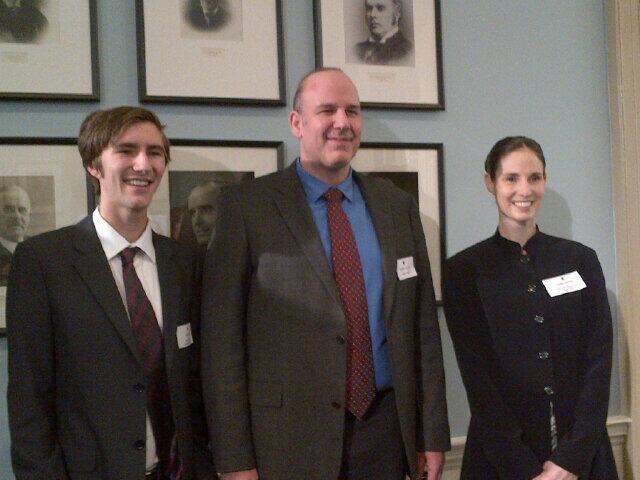 Last week, I stood in a suite of boxes and supplies at the top of the Metro Centre, a volunteer at Free the Children’s first Atlantic Canada We Day. I looked down at a bright, cheering sea of over 10,000 young people who are the future of our region. They are at a time in their life when they believe change is possible, that poverty is solvable, that human development is much more important than economic development. Now, these kids are idealists, sure, but the thing is, their dreams are feasible, those things are possible.
Last week, I stood in a suite of boxes and supplies at the top of the Metro Centre, a volunteer at Free the Children’s first Atlantic Canada We Day. I looked down at a bright, cheering sea of over 10,000 young people who are the future of our region. They are at a time in their life when they believe change is possible, that poverty is solvable, that human development is much more important than economic development. Now, these kids are idealists, sure, but the thing is, their dreams are feasible, those things are possible.
I lead my life by a quote by author Robin Wizowaty, “Opportunity isn’t a chance; it’s a choice. And it’s the choices we make that define the paths our lives will take.” “Opportunity isn’t a chance; it’s a choice.” Therefore, I am taking this opportunity today to fulfill my responsibility as a global citizen, and to do my best to speak on behalf of those 10,000 youth at the Metro Centre and the many more working in Nova Scotia to make this world a better place.
We are at an exciting moment in Nova Scotia, with a new government comes exciting possibilities for the years ahead. I hope that the people with power in our province support those idealistic youth, and are willing to go beyond the status quo to make our province a model of what is really possible when the importance of volunteering and global citizenship is not simply an ideal, but a way of thinking, a way of acting. Whether it is making education more affordable by reducing tuition fees, so young people have the opportunity to volunteer and not spend all their time attempting to save up for post-secondary education, or investing in the idea of social enterprise that is already causing ripples of change all across this province, let’s not let those 10,000 plus young people down. Because if we do, just like I did those four years ago in my principal’s office, those young people will speak louder, become more unified, and not stop until global citizenship is a priority of the province.
ACIC Newsletter
Hello ACIC members, associates and friends!
Due to an overwhelming response to our members survey at the AGM and Symposium, ACIC will be taking a new approach to our Rendez-vous Newsletter. We will still be gathering articles, events and announcements from our members and producing a newsletter, however it will be entirely electronic! They will be placed here: /communications/. We are optimistic that this new form of outreach will suit your individual and membership needs.
We ask that you please provide us with your valuable feedback so we can continue to improve our modes of communication.
That being said, we are now requesting submissions for our Fall 2013 Rendez-vous edition. We are planning to move ahead and start publishing the new issue’s articles by the beginning of November, and we want to hear from YOU!
Do you have an event you’d like to promote? An advertising poster to gain volunteers? How about an article about the great work you’re doing?
If you have any story, BIG or small, the ACIC Rendez-vous newsletter is a great way to spread the word. So please share it with us!
Ideas for submissions:
- News of your activities, including any awards, events (especially for IDW (International Development Week))
- Promotion of your blog or new website,
- Announcements of any upcoming events of interest to ACIC members,
- Announcements of any noteworthy new publications, including audio/video,
- Book reviews
- Reports on any recent events you attended of interest to ACIC members,
Remember:
If possible, please include 3 images saved as a high quality JPEG/PNG. **Please include a caption and who took the photo.
We also welcome any further suggestions for the newsletter. Past newsletters are available online at /communications/ .
Please send your submissions no later than Friday, October 4th, to pe@acic-caci.org.
- Your friends at ACIC
ACIC Networking - Charlottetown, PEI
Thank you to everyone who attended a recent ACIC networking meeting held in Charlottetown on Monday, August 26th. There was a great turn-out, with the following member organizations represented:
- Cuso International
- CUPE Global Social Justice Committee
- Farmers Helping Farmers
- International Sustainable Community Assistance
- The Cooper Institute
- UPEI
Other individuals with an interest in international cooperation were also present and contributed to the discussion, particularly on how to engage youth in our work. ACIC will soon be submitting a proposal to DFATD for continued funding to support member capacity building and public engagement in Atlantic Canada. Over the past number of months, ACIC members have contributed ideas by way of member surveys, participation at our June symposium workshop and, most recently, as part of the PEI meeting. If for any reason you were unable to attend, we encourage you to provide input as we prepare to put these ideas into action by contacting projects@acic-caci.org .
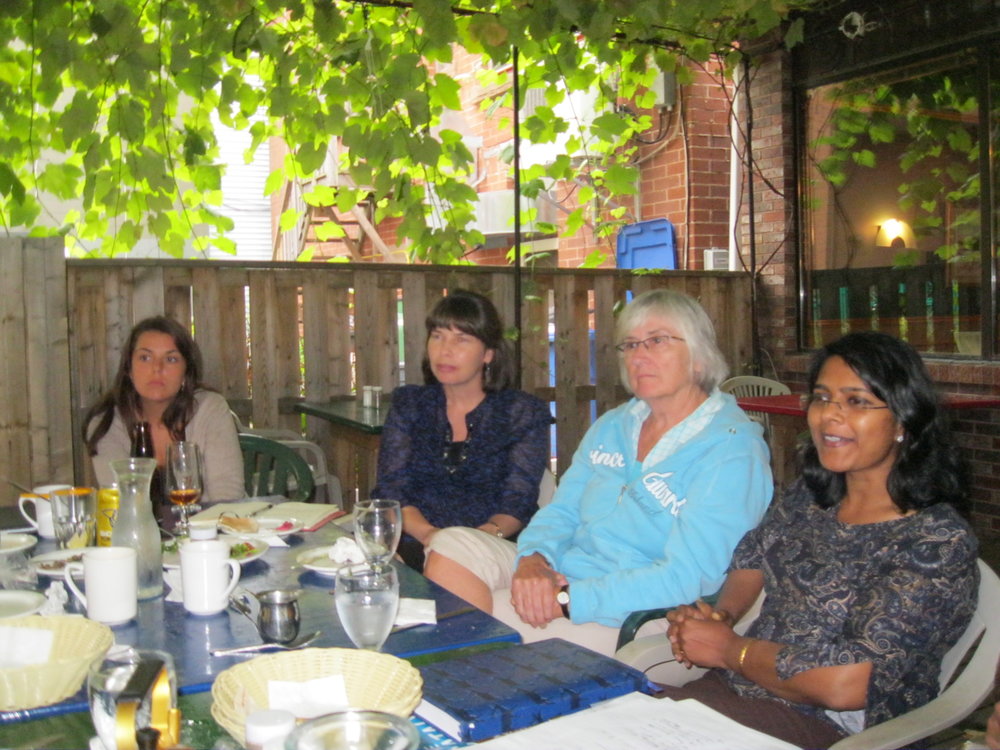
Thanks again to all those who attended! We look forward to seeing you at the next PEI networking event!
Welcoming Back our Global Youth Leaders!
Welcome back from Guatemala to our Global Youth Leaders Isaac, Abby, Kathleen and Brandon!
The youth made it home safe and sound (after a bit of a harrowing series of flights!) from Guatemala on Sunday, July 14.
In Guate, these students met with staff and volunteers from local organizations, as well as community members who have been impacted by international cooperation efforts.
Now that they are back in Canada, the youth will participate in a speaking tour, sharing their experiences and perceptions through a presentation and video they will create based on their time in Guatemala. They will share their experiences with students and other organizations in the Atlantic region throughout fall/winter of 2013.
Thanks to everyone who made this amazing experience possible in Canada and Guatemala. Thank you for all the support at ACIC and Breaking the Silence, as well as the friends and family of these four phenomenal youth. And finally, thanks to the youth themselves for taking part in this journey.
Great job everyone!
GYLT - Picture and Thought of the Day
Saturday, July 13th
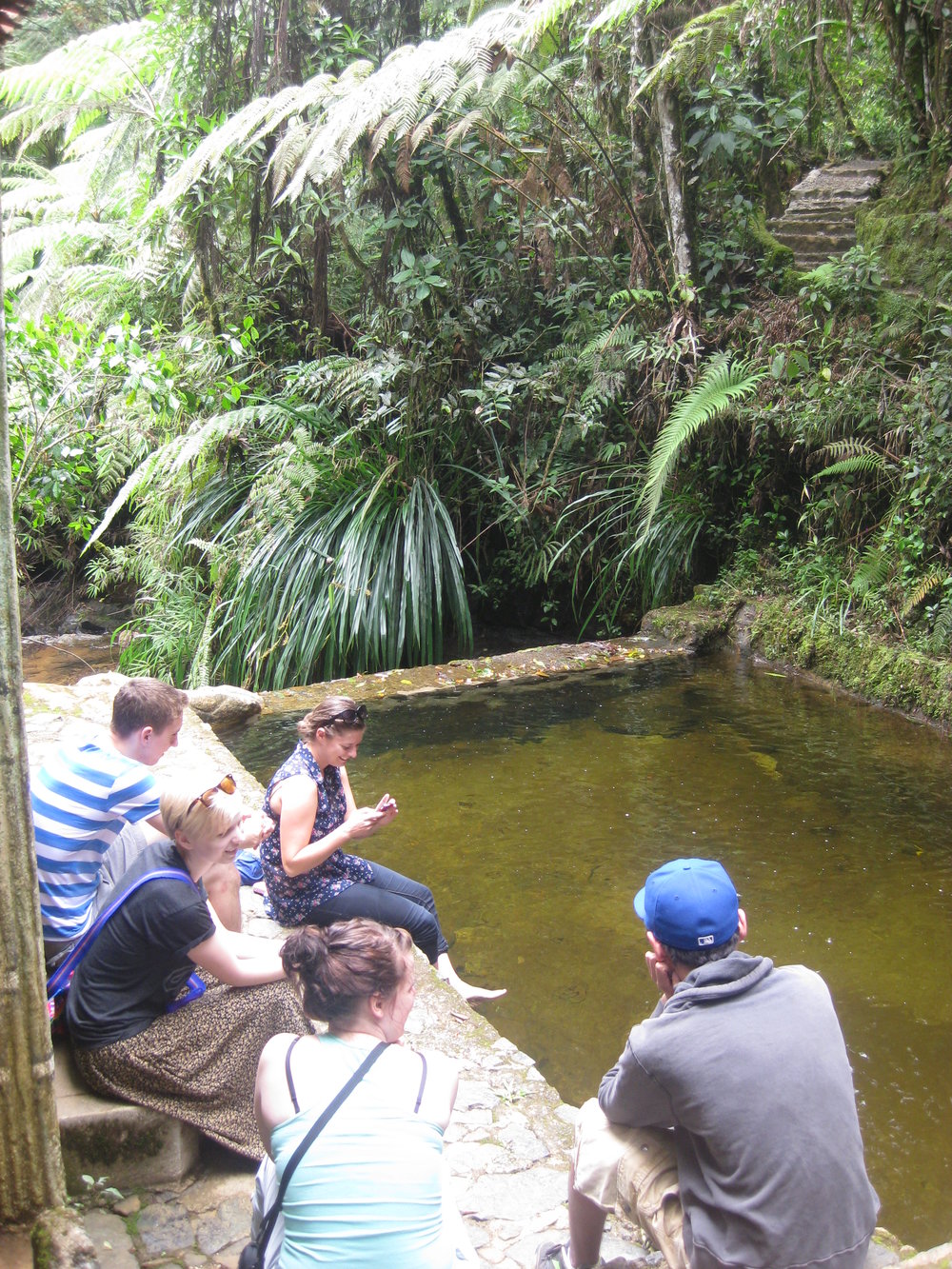
"We sure are going to miss this amazing country!"
See you soon, Kathleen, Isaac, Brandon and Abby!
GYLT - Picture and Thought of the Day
Friday July 12th
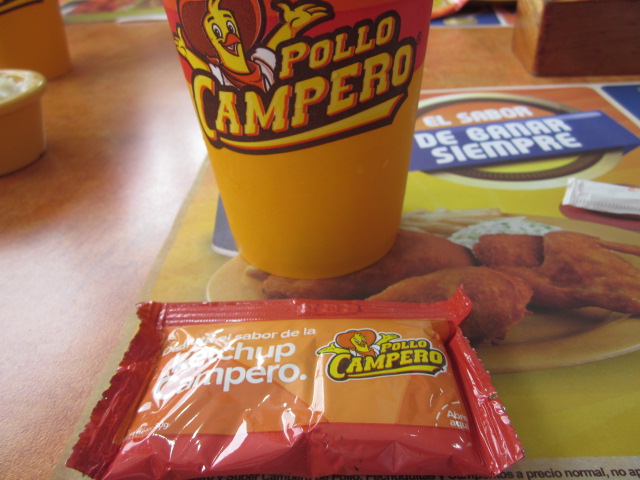
Abby tells us they are at "Pollo Campero, Guatemala's #1 voted best restaurant." She is pleased, because as you can see "they have appropriate sized ketchup portions!"
Haha. Hope you enjoyed it, Abby! We'll see you soon!
GYLT - Picture and Thought of the Day
Thursday July 11th
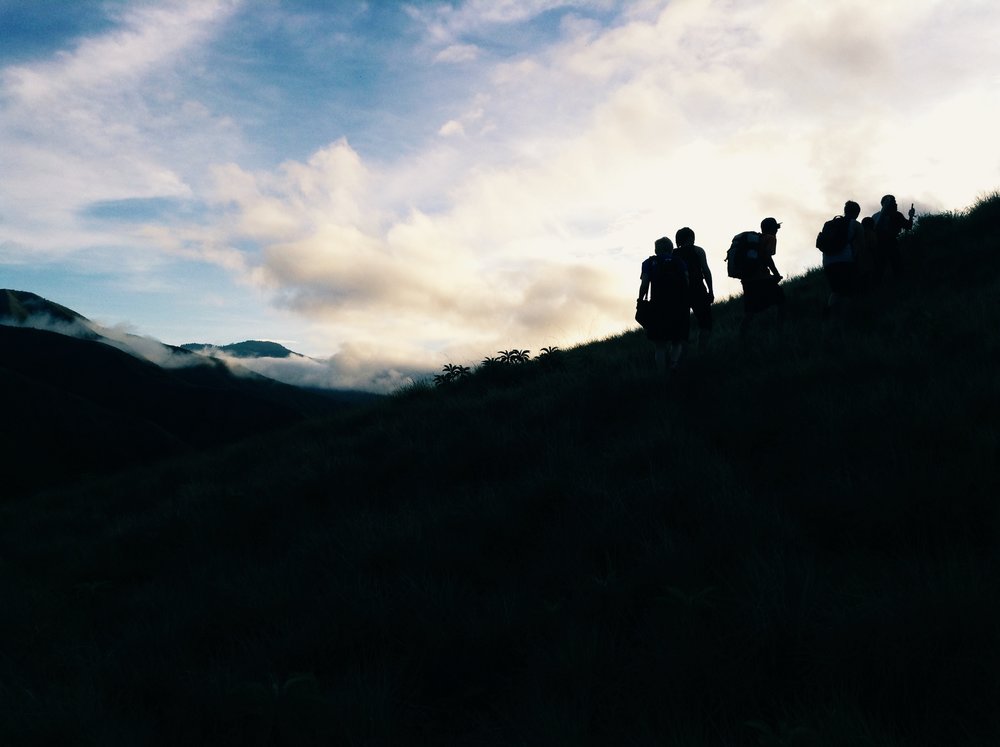
What a gorgeous view, and such a wonderful photo! Can't wait to have you back Abby, Isaac, Kathleen and Brandon!
GYLT - Picture and Thought of the Day
Wednesday July 10th
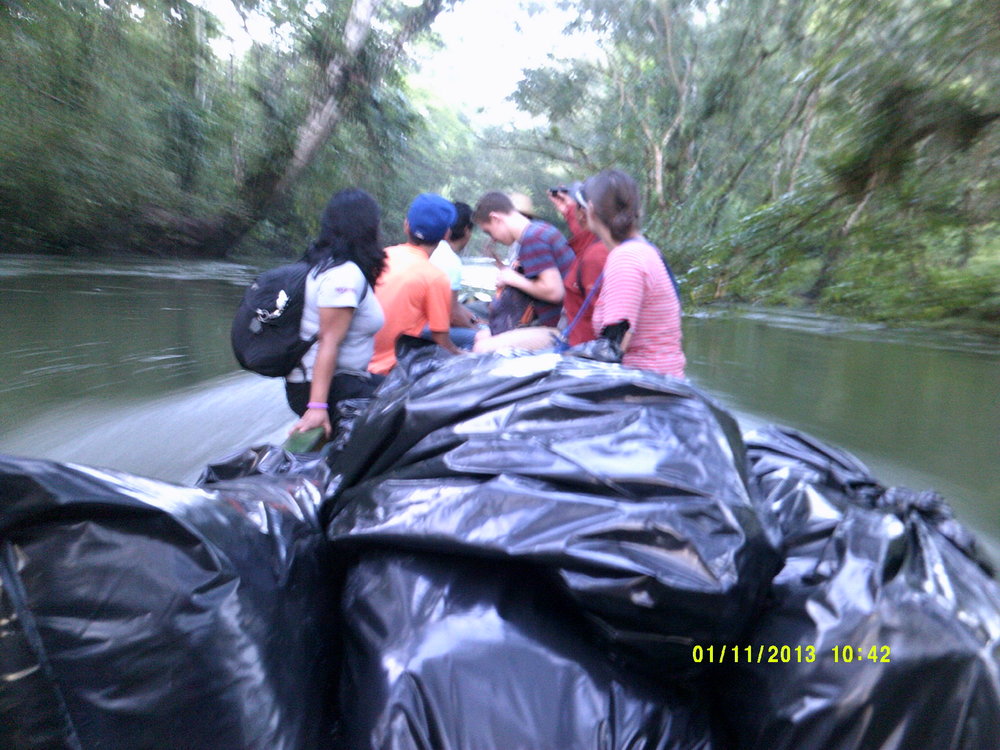
The Global Youth Leaders were headed to an extremely rural town outside Rio Negro. They were the first foreigners that have EVER visited their village - what an event!





